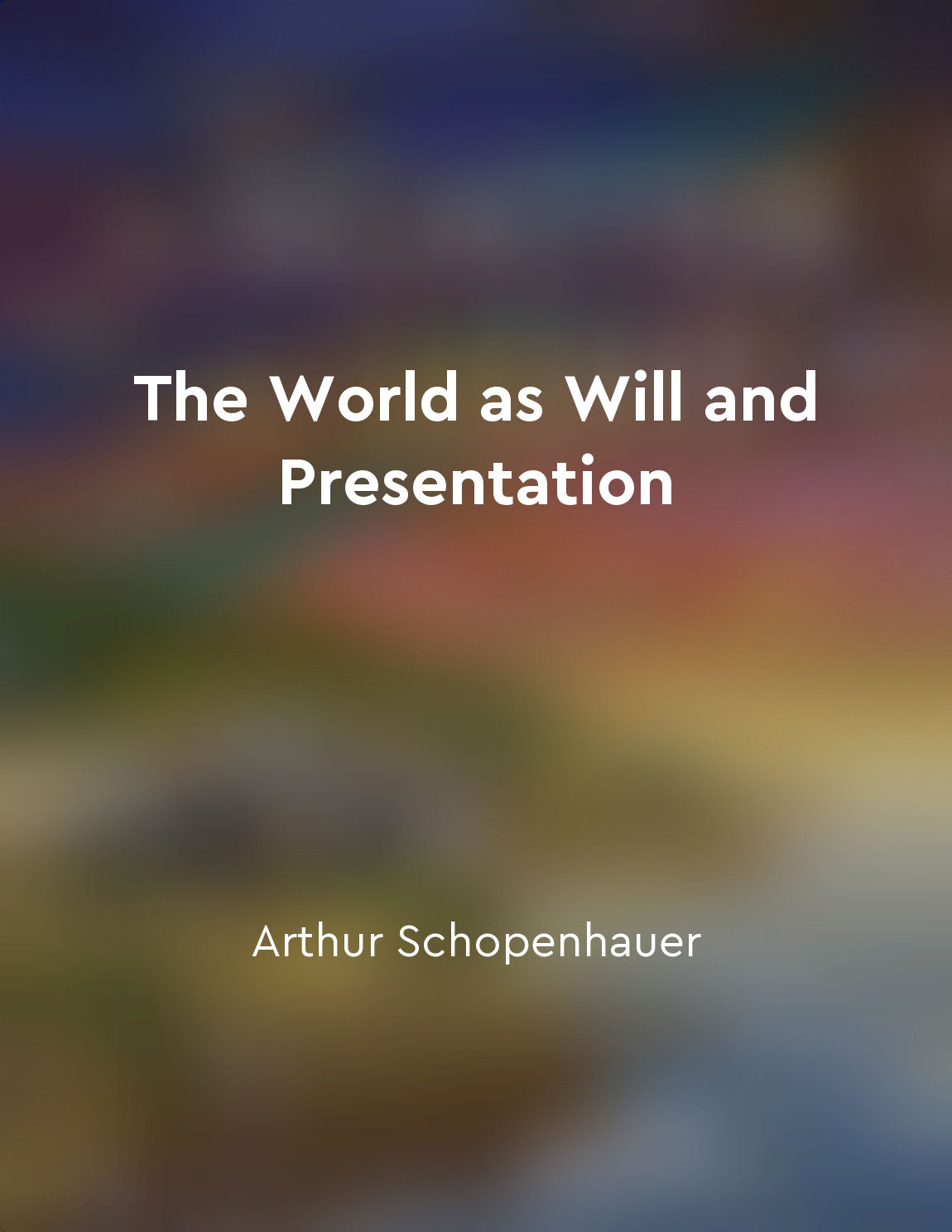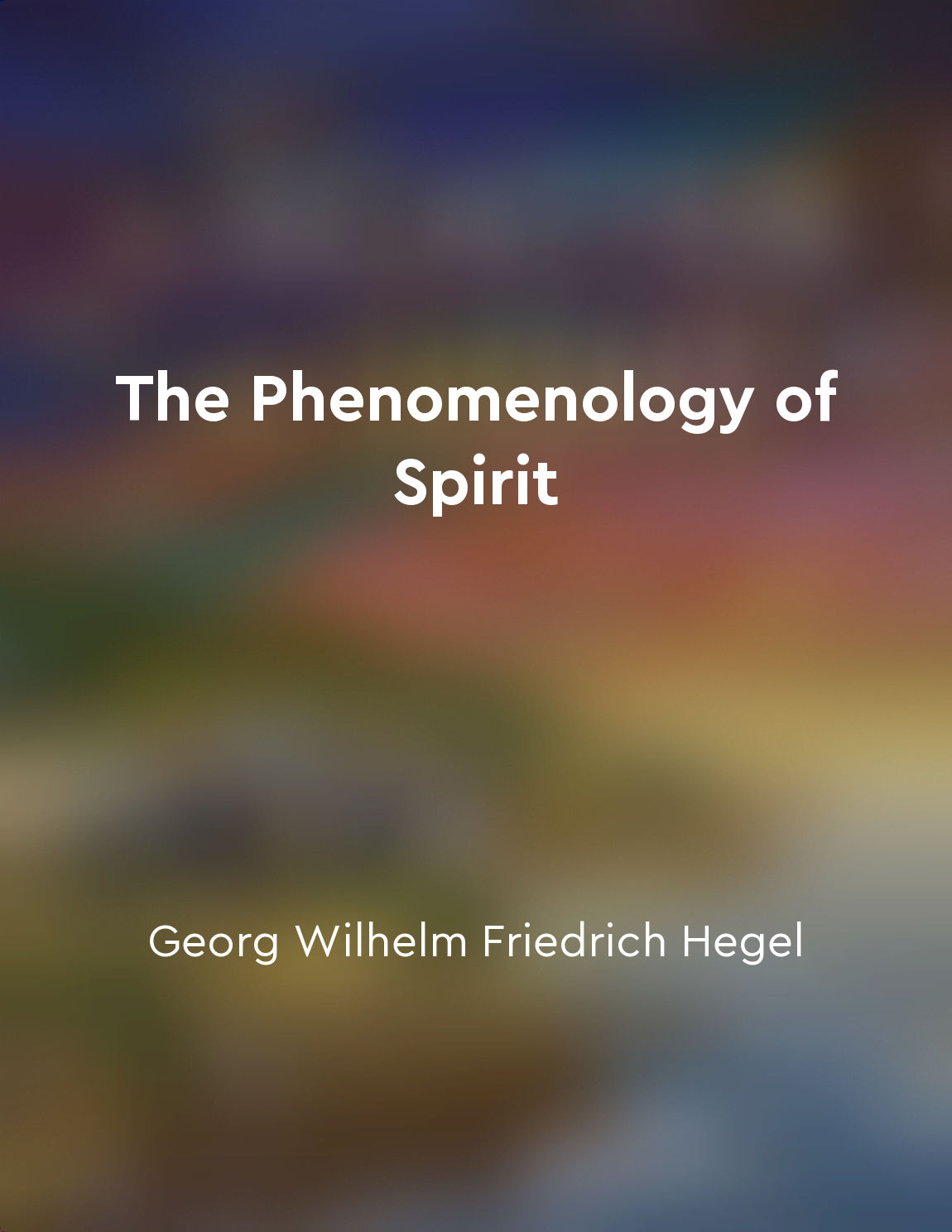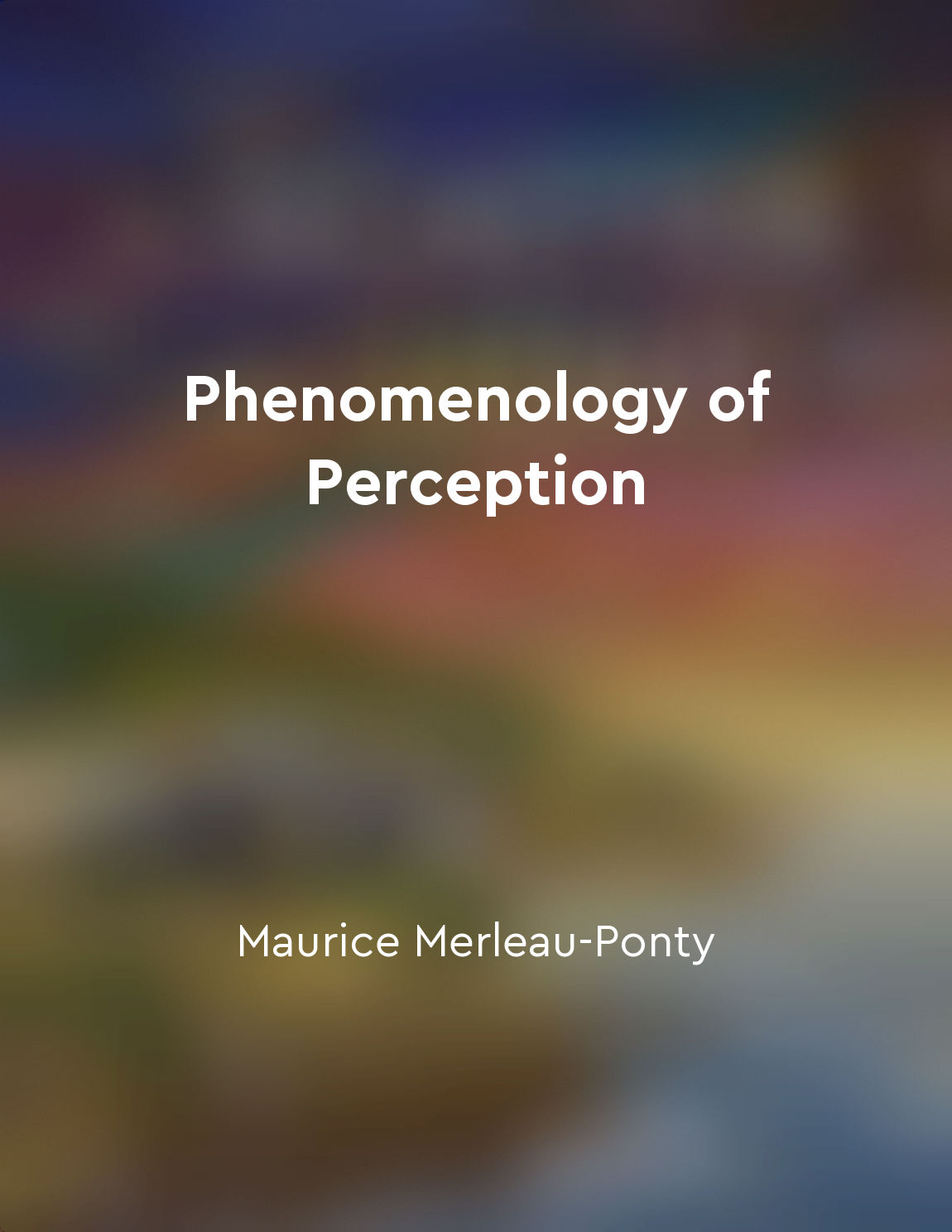Our perception is shaped by our bodily experiences from "summary" of Phenomenology of Perception by Maurice Merleau-Ponty
Merleau-Ponty emphasises the crucial role that our bodily experiences play in shaping our perception of the world. He argues that our perception is not simply a matter of passive reception of sensory information, but rather an active and dynamic process that is deeply intertwined with our bodily sensations and movements. According to Merleau-Ponty, our body is not just a physical entity that passively receives stimuli from the external world; rather, it is an active agent that is constantly engaged in a dialogue with the environment. Our bodily experiences, such as movement, touch, and proprioception, are fundamental to how we perceive and make sense of the world around us. Our bodily experiences provide us with a rich and nuanced understanding of our surroundings. Through our senses, we are able to gather information about the texture, weight, temperature, and spatial layout of objects in our environment. This sensory information is then integrated with our bodily sensations and movements to create a coherent and meaningful perception of the world. Moreover, our bodily experiences shape not only how we perceive the external world but also how we perceive ourselves. Merleau-Ponty argues that our sense of self is inseparable from our bodily experiences. Our body is not just a passive instrument through which we interact with the world; rather, it is an integral part of our identity and self-understanding. In this way, our perception is deeply intertwined with our bodily experiences. The way we move, touch, and feel shapes how we see and understand the world around us. Our body is not just a vessel for our consciousness; it is an active participant in the process of perception, constantly shaping and informing our understanding of the world.Similar Posts
Art has the ability to evoke strong emotions
In art, we find a power that goes beyond mere representation. It has the ability to touch us deeply, to stir emotions within us...
Mindfulness supports emotional regulation
When we practice mindfulness, we are training our minds to pay attention to the present moment without judgment. This kind of f...
Categorical imperative guides moral decisions
The categorical imperative, according to Kant, is a fundamental principle that guides moral decisions. It is not based on any c...

The pursuit of enlightenment as the ultimate goal
In the quest for understanding, one must strive for a higher state of consciousness that transcends the limitations of the indi...

The dialectic of lordship and bondage
The debate between the master and the slave is a fundamental element of the dialectical process in the Phenomenology of Spirit....
Release attachment to outcomes
The idea of letting go of attachment to outcomes is a central theme in the practice of mindfulness. When we become fixated on a...
Trauma can impact the body as much as the mind
The impact of trauma is not limited to the mind; it can manifest in the body as well. When a person experiences trauma, whether...

Totality as the highest truth
The highest truth is found in the totality of all things, where the individual moments and contradictions are reconciled and in...

